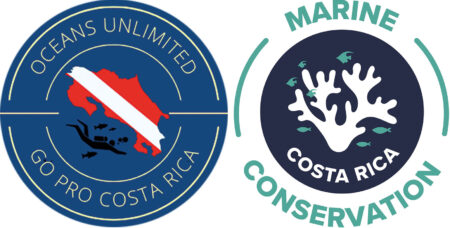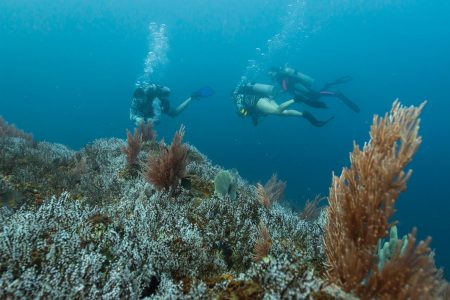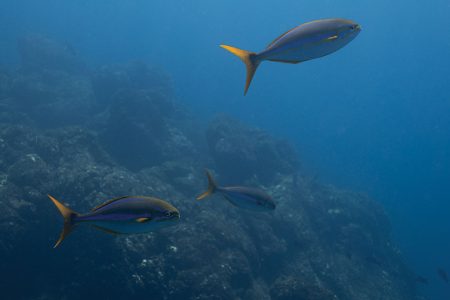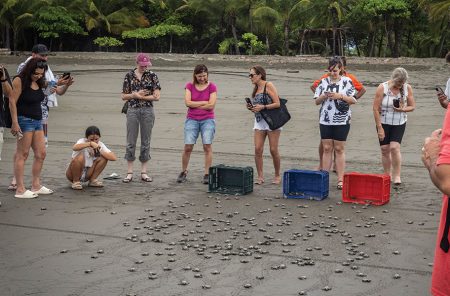Dive Deep, Dive Green: Eco-Friendly Practices for Water and Scuba Enthusiasts in Costa Rica
 Whilst all of us may not be scuba divers yet, it may be something you are thinking about. Maybe not, maybe you just love the water. Whoever you are and however much you enjoy the water. Costa Rica is certainly a place to enjoy the ocean. But whilst doing that, it is important to engage in eco friendly practices. Here in Costa Rica we have a beautiful underwater paradise that is waiting to be explored. CIn this article, we explore how divers and water enthusiasts can enjoy the beauty of Costa Rica’s oceans while contributing to their conservation.
Whilst all of us may not be scuba divers yet, it may be something you are thinking about. Maybe not, maybe you just love the water. Whoever you are and however much you enjoy the water. Costa Rica is certainly a place to enjoy the ocean. But whilst doing that, it is important to engage in eco friendly practices. Here in Costa Rica we have a beautiful underwater paradise that is waiting to be explored. CIn this article, we explore how divers and water enthusiasts can enjoy the beauty of Costa Rica’s oceans while contributing to their conservation.
 The Importance of Eco-Friendly Diving
The Importance of Eco-Friendly Diving
If you are a scuba diver, Eco-friendly diving is essential for maintaining the health of marine ecosystems. The delicate balance of oceanic life can be easily disrupted by careless human activities. Eco-friendly practices not only minimize negative impacts but also promote the regeneration and sustainability of marine environments. In Costa Rica, where marine biodiversity is a significant draw for tourists, adopting green diving practices is crucial.
Eco-Friendly in-water Practices
Buoyancy Control: Mastering buoyancy is vital for protecting marine habitats, and not just for scuba divers underwater. Proper buoyancy control prevents you from unintentionally touching or damaging corals and other sensitive structures. As a snorkeler or swimmer this could be floating with a good distance from reefs and not walking or stepping on reefs and rocks in the ocean. This skill can be developed through training and practice, ensuring that you as divers and snorkelers can hover effortlessly above the seabed.
Marine Life Interaction: Respecting marine life is a cornerstone of eco-friendly interactions. Avoid touching or chasing marine creatures, and maintain a safe distance to prevent stress or harm. Remember, your presence should be non-intrusive and leave no trace. Extremely important as well, do not feed marine life. The same rules apply in the ocean as they do on land. Feeding fish, pineapple, water melon or whatever you have onboard is not part of their natural diet so please refrain from doing so.
 Use Reef-Safe Sunscreen: Many sunscreens contain chemicals harmful to marine life, particularly coral reefs. Opt for reef-safe sunscreens that do not contain oxybenzone or octinoxate. These products protect your skin without compromising the health of the ocean.
Use Reef-Safe Sunscreen: Many sunscreens contain chemicals harmful to marine life, particularly coral reefs. Opt for reef-safe sunscreens that do not contain oxybenzone or octinoxate. These products protect your skin without compromising the health of the ocean.
Minimize Plastic Use: Plastic pollution is a significant threat to marine environments. Reduce your plastic footprint by using reusable water bottles, bags, and containers. Participate in beach clean-ups and underwater clean-ups organized by local dive shops to help remove debris from the ocean.
Support Marine Conservation Projects: Many operators in Costa Rica are involved in conservation projects such as coral reef restoration, marine species monitoring, and education initiatives. Participating in these programs not only enhances your on water experience but also contributes to the long-term health of marine ecosystems.
In conclusion
Diving and snorkeling in Costa Rica offers an unforgettable adventure, with its rich marine biodiversity and stunning underwater landscapes. By adopting eco-friendly practices, you can play a crucial role in preserving these natural wonders for future generations. From selecting responsible operators to participating in conservation projects, there are numerous ways to make a positive impact.
 So how can you get Involved?
So how can you get Involved?
Discover Scuba Diving Experience: For those new to diving, the Discover Scuba Diving experience provides a perfect introduction, combining essential skills with a strong emphasis on environmental stewardship. As you dive deep into Costa Rica’s oceans, remember that every action counts. Together, we can ensure that these underwater treasures remain vibrant and thriving for years to come. For the Discover Scuba Diving program, where you’ll learn essential diving skills and eco-friendly practices in a one-day experience. This includes classroom sessions, pool training, and an open water dive under professional supervision.
Advance Your Dive Education: If you are already a diver, pursue advanced diving certifications and specialized courses focusing on marine conservation.
Volunteer with Marine Organizations: Get involved with local marine conservation groups. There are many great causes around our area including a turtle rescue center and our own marine conservation center.
By taking these steps, you can contribute to the preservation of Costa Rica’s marine ecosystems while enjoying the beauty and adventure of scuba diving.
